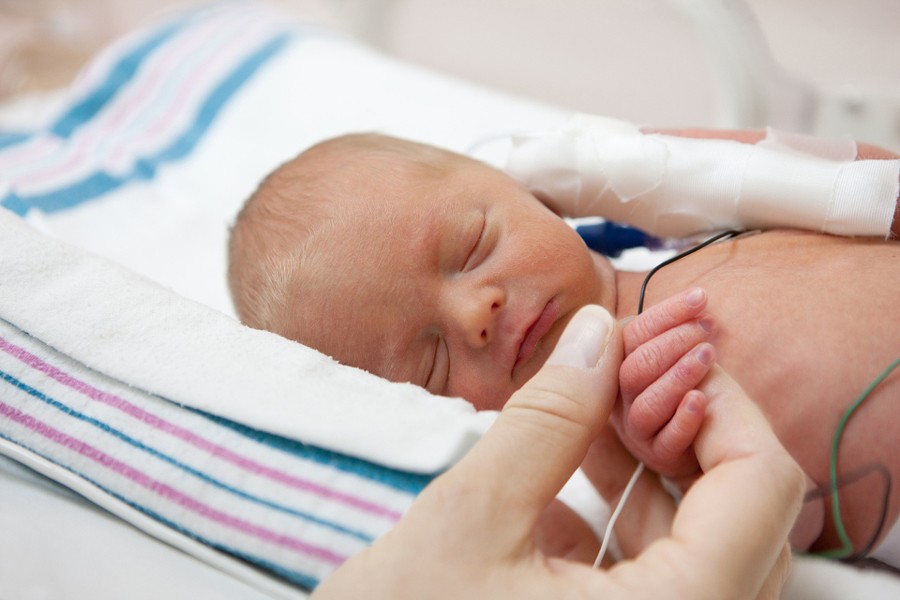Scientists are trialling a blood test that may predict whether a pregnant woman will give birth prematurely.
Preliminary results, published in the journal Science, suggest it is accurate in up to 80 per cent of high-risk women.
The team, at Stanford University, in the US, say it is also as accurate as ultra-sound scans at predicting due dates.
However, there is still far more work to do before it could be used clinically.
Every year 15 million babies are born too early (before 37 weeks gestation) around the world
Preterm birth is linked to a million deaths a year and it is the leading cause of deaths among children under the age of five. Moreover, the test measures the activity of genetic material, called RNA, coming from the foetus, placenta and mother that ends up in the bloodstream.
The researchers started by taking blood samples from pregnant women every week to see how levels of different RNAs changed during pregnancy and which could be used to predict gestational age or a premature birth.
The blood test was accurate 45 per cent of the time at predicting gestational age in experiments involving 38 women, compared with 48 per cent for ultrasounds, the researchers say.
The test was also used to predict preterm birth up to two months ahead of labour starting.
It was used in two separate groups of women - in one it was right six times out of eight, in the other it worked four times out of five.
Mira Moufarrej, one of the researchers, said, "I'm really excited about the potential of all this.
"If we can use a mother's blood to make healthcare more accessible and affordable to people that don't have access to ultrasounds, then hopefully that means healthier babies and healthier pregnancies."
However, she emphasised this was still only a pilot study and the results needed to be confirmed in much larger trials.
Prof Basky Thilaganathan, a Royal College of Obstetricians and Gynaecologists spokesman, said: "Complications from premature birth are a leading cause of infant mortality and affect 7-8 per cent of all births in the UK, reports BBC.
"However, the number of cases in the study were small and the accuracy of prediction was poor for premature birth.
"More research is needed to confirm the findings before it can be considered in clinical settings."


